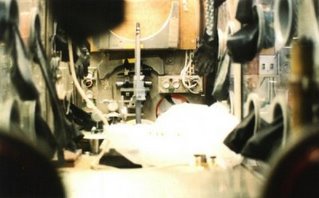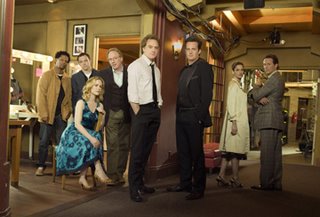Alternatives to Congress and the Prez

Keywords: Climate Change; peak oil; Supreme Court; purchasing power of government
The big forum on climate change and peak oil is tomorrow. Besides managing my to-do lists, I have been thinking about climate change a lot. Today I was interviewed on CIUT about the forum. When they asked me what the key difference is between the peak oil thinkers and the climate change thinkers I said that it was a question of timing. I’m not sure that’s the best answer, but there’s at least something to it. Specifically, it’s a question of which problem is going to overtake us first. The peak oil people believe (I guess – but I’m over-generalizing) that before we run into the catastrophic effects of global warming, we’ll already be in deep trouble because of the lack of cheap energy. Climate change people believe that global warming is going to do us in first. Indeed, some of them may even think that the sooner we run out of oil, the better, because that will delay the cooking of the planet.
I keep looking for alternatives – not only hopeful new technologies but alternative ways around the governmental obstacles. Some people look forward to a new regime – Democrats in Congress, Liberals or better in Parliament. But that’s too long to hold your breath.
Instead of the legislative or executive branches of the federal government, the judiciary may be one way to go. John Conelly published an article in The Boston Globe on November 30 reporting on a case that the US Supreme Court is hearing about the impact of auto and truck emissions on the environment. It seems that Massachusetts and eleven other states are arguing that the US Environmental Protection Agency must use its power to stop the damage to the coastlines that will result from the impact of carbon dioxide on global warming.
Climatologists estimate that six percent of the planet’s greenhouse gases are caused by cars and trucks in the United States. The states are testifying before the supreme court that the EPA is not using its authority to set strict limits on CO2 emissions. For its part, the EPA claims that it lacks the power to do so – but of course it takes that position because the White House does not intend for it to limit emissions. The lawyer representing the EPA is the deputy solicitor general, who of course is appointed by the Bush administration.
The Boston Globe article notes that the Clean Air Act requires the federal government to regulate “any air pollutant” that can “reasonably be anticipated to endanger public health or welfare.” According to the states and other environmental groups, this clearly includes greenhouse gases from American vehicles.
Some of the more conservative justices seem to be questioning whether the EPA could possibly reduce CO2 emissions enough to make much difference. In any case, it’s a promising approach.
Besides that, there are encouraging efforts by other governmental bodies — local and state levels (notably California) — which are not waiting for the federal government’s initiative.
Government has purchasing power that can also make a huge difference. Jonathan Koomey’s book, Winning the Oil Endgame, suggests that such purchasing decisions can be exceedingly influential in the developing of energy efficiency. When any branch of government raises its standards for the purchase of trucks, the manufacturers will start meeting those higher standards. This is also within the power of certain large corporations. For example, Wal-Mart has declared that it will require its trucks to become doubly — and eventually triply — efficient. Because of Wal-Mart’s size, that one decision has an impact on the truck industry.
So while we’re waiting for better politicians to come onto the national scene, we can possibly make other useful changes by influencing local and provincial governments, as well as the employees of government who make the decisions about how to spend our money. And I love the idea of dragging the Bush administration before the US Supreme Court for failing to do its duty. Way to go, Massachusetts!











